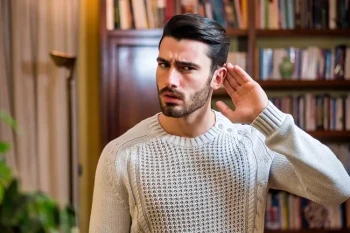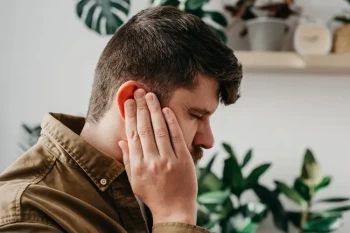
Originally written June 4, 2019
You want to do everything you can to ensure your child grows up healthy and happy. You baby-proof your house, you feed them nutritious food, and give them plenty of tummy time. But have you considered whether you’re exposing your child to too much noise?
In This Article...
- Why is hearing so important?
- Are my child's toys too loud?
- Are white noise machines good for my child?
- Is my home too loud?
- How else can I prevent pediatric hearing loss?
Why is hearing so important?
Hearing is a very important factor in a child’s development. It is a key way that children learn to speak, it is an important part of how their brain develops between birth and age 3, and it helps parents form bonds with their children.
The problem is, babies aren’t capable of telling you if a noise is too loud, so it’s very important that parents take steps to ensure their child’s hearing is protected.
You’ll want to keep sounds around your child quieter than 60 decibels. For comparison, quiet conversation at home is about 50 dB, freeway traffic is 70 dB, a workplace can be 80-85 dB, and a jet takeoff is about 100 dB.
Are my child's toys too loud?
Some toys, such as talking dolls or cars with sirens, might be too loud for a child, especially if your infant holds the toy close to their ear. These toys can be as loud as 80-120 dB.
Are white noise machines good for my child?
Some people like to play white noise machines to help their babies sleep, but other people are concerned that they could be too loud. White noise machines are fine as long as the noise is lower than 60 decibels, they aren’t placed right near the crib, and you don’t run them constantly.
Some people like to place them right next to a child’s bed and play them at top volume, since some guides encourage parents to use them to mask noises coming from outside the child’s room. This isn’t safe, though. Some of these noise machines can get up to 85 dB, and prolonged exposure can end up damaging a child’s ear.
Is my home too loud?
Even everyday noises in your home or neighborhood that are fine for you are too loud for your child. For example, a vacuum cleaner runs at 70 dB, and a city street can get up 90 dB. Make sure to keep your child in a separate room if you have to run something loud in the house and keep their outdoor noise exposure to a minimum.
How else can I prevent pediatric hearing loss?
If you can’t avoid taking your infant somewhere loud, you can always get them hearing protection like headphones.
Your child’s hearing is very important. If you are ever concerned about it, don’t hesitate to make a pediatric hearing test appointment at CEENTA.
This blog is for informational purposes only. For specific medical questions, please consult your doctor.
You may also be interested in

Hearing loss can happen to anyone, even out of nowhere. Learn more about sudden onset sensorineural hearing loss and the common symptoms.

Have you ever complained of hearing your heartbeat in your ear? Learn more about pulsatile tinnitus from a CEENTA audiologist.

If your student is struggling in school, it might be due to hearing loss. Learn more from CEENTA otolaryngologist Nicholas Stowell, MD, and your pediatric audiology options.
Leave a Comment
Back to News

